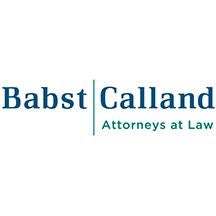On November 3, 2022, the Pennsylvania General Assembly enacted Senate Bill 806, which amends the Oil and Gas Lease Act of 1979 (P.L. 183, No. 60). The new act seeks to increase transparency around the payment of royalties from oil and natural gas operators to landowners pursuant to their lease agreements.
Senator Gene Yaw (R-23), the prime sponsor of Senate Bill 806, believes the act will address recent concerns among landowners regarding the way in which royalties are being calculated, described and ultimately paid.
“Concerns have been expressed by land and mineral owners for some time now centered on the lack of transparency that can come with deductions from their royalty payments,” Yaw noted in January 2022, when the bill passed the Senate. “In some cases, general deductions with little to no description are subtracted from landowner’s checks, leaving them with a fraction of what was promised. My legislation would not impact lease agreements, but it would require entities making payments to landowners to provide more description, clarity and uniformity on their royalty check statements.”
Various agencies and organizations supported the bill in the months leading up to its passage, including the Pennsylvania Farm Bureau, the Pennsylvania Oil and Gas Landowner Alliance, the Marcellus Shale Coalition, Bounty Minerals, the Pennsylvania Independent Oil & Gas Association and the Pennsylvania Grade Crude Oil Coalition.
Oil and natural gas operators should be aware of the following provisions of the act, which will take effect on Friday, March 3, 2023:
Definitional Changes
Section 1 of the act clarifies the scope of ownership interests by replacing the 1979 act’s original, broadly defined “interest owner” term with a more precise “royalty owner” term. The act defines a “royalty owner” as “any owner of oil or gas in place or oil or gas rights, subject to a lease covering such oil or gas in place or oil or gas rights.” This includes owners who: (1) are entitled to share in the production of the oil or gas under their leasing agreements; or (2) have an interest in oil or gas in place or oil and gas rights but who have not entered into a lease (provided that such owner is not an “operator” under 58 Pa.C.S. §3203).
Expanded Check Stub Requirements
Section 2 of the act increases payors’ informational responsibilities for the check stubs they provide to royalty owners and differentiates these requirements for production of oil, natural gas and natural gas liquids from conventional and unconventional formations. For unconventional wells, these requirements include specifying:
-
Total barrels of crude oil or number of Mcf or MMBtu of gas and volume of natural gas liquids produced and sold from each well;
-
The price received by the payor per unit of oil, natural gas and natural gas liquids produced and sold;
-
Aggregate amounts for each category of deductions for each well incurred by the payor which reduces the royalty owner’s payment, including all severance and production taxes;
-
The net and gross value of the payor’s total sales of oil, gas and natural gas liquids from each well (minus any deductions); and
-
The relevant royalty owner’s legal and contractual interest in the payor’s share, along with the royalty owner’s share of: (1) the gross value of the payor’s total sales before any deductions; and (2) the sales value minus the royalty owner’s share of taxes and any deductions.
Upon the mutual consent of the parties, the act notably requires payors to furnish royalty owners with summary statements setting forth each of the prescribed informational requirements. Once a royalty owner makes a written request for summary statements under the act, the payor must provide such statements from the month of the notice and each month thereafter, as well as for any prior period requested by the royalty owner.
If a payor fails to provide the payment information required by the act, a royalty owner may make a written request for the same. If a payor fails to respond within 60 days after receiving said request, the act gives royalty owners a cause of action for enforcing the provisions of the act and a right to recover attorneys’ fees and court costs.
The act permits payors to provide the required payment information electronically if a royalty owner has historically received such information electronically or upon mutual written consent by the parties.
Timing of Payments
Unless a lease specifies otherwise (and subject to select carve-outs in the act), payors must make payments to royalty owners: (1) no later than 120 days from the date of the first sale of oil, gas or natural gas liquids; and (2) for all subsequent sales, within 60 days after the end of the month when the production is sold. A payor’s failure to make timely payments in accordance with the act shall incur interest (unless otherwise provided for in the applicable lease).
Originally Published by Babst Calland on November 8th, 2022




 />i
/>i
